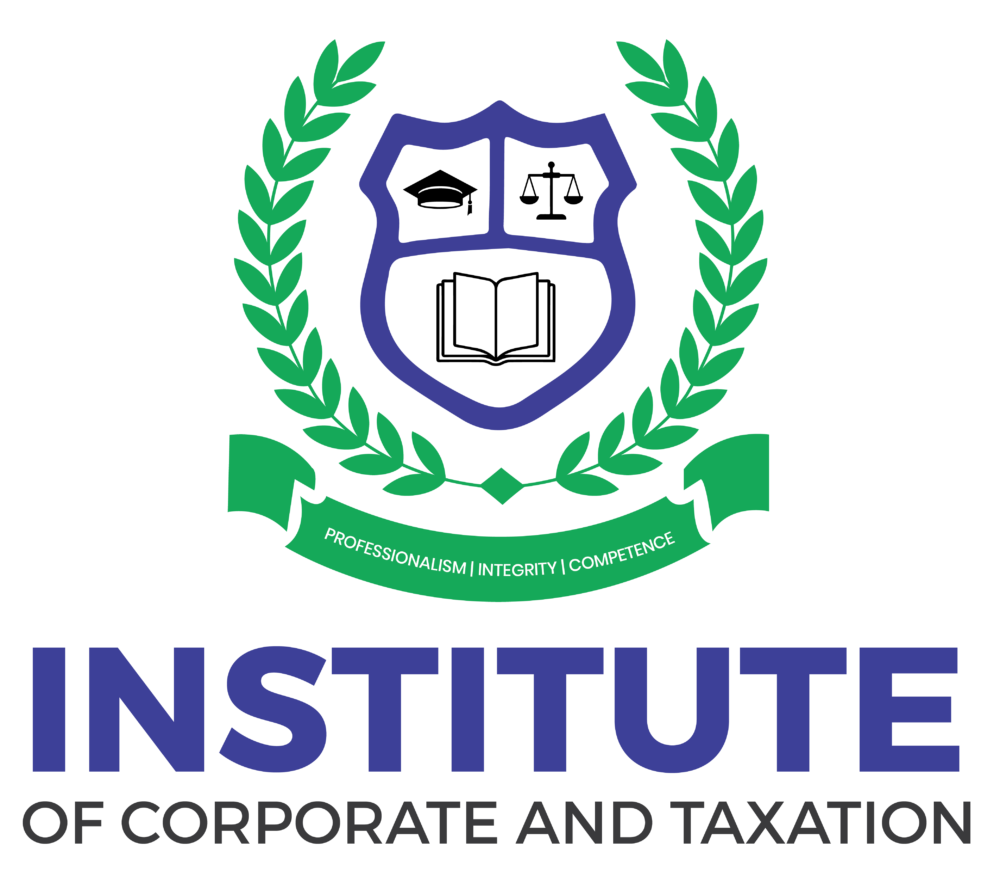
Is AI Data Analyst a Good Career in 2025?
Is AI Data Analyst a Good Career in 2025? Complete Guide for Pakistan
The world of work is changing fast, and artificial intelligence is leading that change. If you’re wondering whether becoming an AI data analyst is the right career move in 2025, you’re asking the right question at the right time. With businesses increasingly relying on data-driven insights, AI data analysts are becoming some of the most sought-after professionals globally—and Pakistan is no exception.
In this guide, we’ll explore what AI data analytics really means, the skills you need, salary expectations, job opportunities, and whether this career path makes sense for students and professionals in Pakistan.
What Does an AI Data Analyst Do?
An AI data analyst combines traditional data analysis with artificial intelligence and machine learning techniques to extract meaningful insights from complex datasets. Unlike conventional data analysts who primarily work with spreadsheets and basic statistical tools, AI data analysts use advanced algorithms, predictive analytics, and automation tools to solve business problems.
Their daily work includes cleaning and preprocessing data, building machine learning models, creating data visualizations, and presenting findings to stakeholders. They help companies understand customer behavior, optimize operations, predict market trends, and make smarter decisions based on real-time data insights.
The role sits at the intersection of business intelligence, data science, and artificial intelligence. AI data analysts are becoming vital for companies seeking data-driven growth, especially as automation continues to reshape industries worldwide.
Skills Required to Become an AI Data Analyst in 2025
Starting a career as an AI data analyst doesn’t require a fancy degree from day one, but you do need specific technical and analytical skills. Here’s what matters most:
Technical Skills:
- Proficiency in Python programming for data analytics
- Understanding of machine learning algorithms and neural networks
- Experience with data visualization tools like Tableau, Power BI, and Excel
- Knowledge of SQL for database management
- Familiarity with AI-based reporting tools and automation platforms
- Basic understanding of cloud-based analytics solutions
Analytical Skills:
- Strong problem-solving abilities
- Statistical thinking and data mining expertise
- Ability to interpret complex datasets and identify patterns
- Business intelligence understanding
- Critical thinking for data-driven decision-making
Soft Skills:
- Clear communication to explain technical findings to non-technical teams
- Curiosity and continuous learning mindset
- Attention to detail
- Project management abilities
The good news? You can learn most of these skills through structured courses, online platforms, and hands-on practice. Many successful AI data analysts in Pakistan started with basic computer knowledge and built their expertise over 6-12 months through dedicated learning.
AI Data Analyst Salary in Pakistan and Globally
Let’s talk numbers, because salary potential matters when choosing a career path.
In Pakistan: Entry-level AI data analysts typically earn between PKR 50,000 to PKR 80,000 per month. With 2-3 years of experience, this can jump to PKR 100,000 to PKR 150,000 monthly. Senior AI data analysts with 5+ years of experience and strong portfolios can command salaries upward of PKR 200,000 per month, especially in multinational companies or tech startups.
Globally: The international market offers even more attractive compensation. In countries like the United States, AI data analysts earn an average of $75,000 to $120,000 annually. The UK, Canada, and Australia offer similar ranges. Remote AI data analyst jobs are increasingly common, allowing Pakistani professionals to earn international salaries while working from home.
The salary gap between traditional data analysts and AI-skilled analysts is significant. AI and data analytics professionals typically earn 30-40% more than their counterparts who lack AI expertise. This premium reflects the growing demand for professionals who can work with artificial intelligence-driven insights.
Is There Future Demand for AI Data Analysts?
The short answer: absolutely yes. AI data analysts are among the top 10 most in-demand tech roles globally, and this trend is accelerating.
According to industry reports, data analytics career opportunities are expected to grow by 25-30% through 2030. In 2025, businesses rely on AI-powered insights more than ever, especially as competition intensifies and profit margins tighten. Companies need professionals who can turn massive amounts of data into actionable strategies.
Why the demand keeps growing:
The rise of automation is increasing demand for AI-skilled analysts. As routine tasks become automated, businesses need human experts who can interpret AI outputs, validate findings, and provide strategic recommendations. AI data analytics bridges the gap between machine learning and business intelligence in ways that pure automation cannot replace.
Pakistan’s digital economy is expanding rapidly. The government’s focus on IT exports and digital transformation means more local companies are investing in data analytics. From e-commerce platforms to fintech startups, healthcare providers to manufacturing firms—everyone needs AI data analysts.
The skill gap in AI and data fields also works in your favor. While demand is high, the supply of qualified professionals remains limited. This creates excellent job security and negotiating power for those who develop the right skills.
AI vs Traditional Data Analysis — What’s the Difference?
Understanding this distinction is important for career planning.
Traditional data analysts work primarily with historical data, creating reports and dashboards that show what happened in the past. They use tools like Excel, basic SQL queries, and simple visualization platforms. Their work is descriptive—explaining past events.
AI data analysts, on the other hand, work with predictive analytics and prescriptive insights. They don’t just tell you what happened; they predict what will happen next and suggest what actions to take. They use machine learning algorithms to identify patterns humans might miss, automate repetitive analysis tasks, and provide real-time data insights that update continuously.
The question “can AI replace data analysts” comes up often. The reality is more nuanced. AI won’t replace data analysts—it will transform the role. Basic, repetitive analysis tasks will be automated, but the strategic thinking, business context understanding, and decision-making guidance that skilled analysts provide remains irreplaceable.
This is why learning data analytics with AI puts you ahead of the curve. You’re not competing with automation; you’re partnering with it.
AI Tools Every Data Analyst Should Learn
Building practical skills means mastering the right tools. Here’s what AI data analysts use daily:
Programming Languages:
- Python remains the top choice for AI data analysis
- R for statistical computing
- SQL for database queries
Machine Learning Frameworks:
- TensorFlow and PyTorch for building models
- Scikit-learn for practical machine learning applications
Data Visualization:
- Tableau for interactive dashboards
- Power BI for business intelligence reporting
- Matplotlib and Seaborn for Python-based visualizations
AI Automation Tools:
- Google Cloud AI and AWS Machine Learning services
- Azure ML for enterprise solutions
- Various AI-driven insights platforms
Additional Tools:
- Jupyter Notebooks for coding and documentation
- Git for version control
- Apache Spark for big data processing
Most AI data analyst courses cover these tools systematically, starting from basics and progressing to advanced applications. The key is practicing with real datasets, not just watching tutorials.
How to Start a Career as an AI Data Analyst
Ready to begin? Here’s a practical roadmap for Pakistani students and professionals:
Step 1: Build Foundation Knowledge Start with basic programming, preferably Python. Learn fundamental statistics and how to work with data. You don’t need to be a math genius, but understanding basic probability, averages, and data distributions helps enormously.
Step 2: Take Structured Courses Self-learning is valuable, but structured courses accelerate your progress. Look for programs that offer:
- Comprehensive curriculum covering AI and traditional analytics
- Hands-on projects with real datasets
- Certification upon completion
- Job placement support or career guidance
The ICT – Institute of Corporate and Taxation Islamabad offers specialized AI data analyst courses designed specifically for Pakistani students. Their programs combine theoretical knowledge with practical skills, ensuring you’re job-ready upon completion.
Step 3: Practice with Real Projects Theory without practice doesn’t land jobs. Build a portfolio showcasing:
- Data cleaning and preprocessing projects
- Predictive models you’ve created
- Visualizations that tell meaningful stories
- Analysis of real-world business problems
Step 4: Network and Apply Join online communities, attend meetups, connect with professionals on LinkedIn. Start applying for entry-level positions or internships. Don’t wait until you feel “100% ready”—practical experience teaches faster than any course.
Step 5: Keep Learning AI and data analytics evolve constantly. Follow industry blogs, take advanced courses, learn new tools. Continuous learning isn’t optional; it’s part of the job description.

Why Choose Professional Training in Pakistan?
While free resources like Coursera, Google’s data analytics courses, and YouTube tutorials are valuable, structured local training offers distinct advantages:
Local Context: Training institutes in Pakistan understand the local job market, salary expectations, and employer requirements. They can connect you with opportunities that international platforms cannot.
Networking: In-person or hybrid courses let you build relationships with instructors and fellow students who become your professional network.
Hands-On Support: When you’re stuck on a concept or project, having accessible instructors makes a huge difference compared to struggling alone with online tutorials.
Placement Assistance: Quality institutes help with resume building, interview preparation, and often have partnerships with hiring companies.
The Institute of Corporate and Taxation (ICT) in Islamabad specializes in preparing Pakistani students for AI and data-driven careers. Their AI data analyst course covers everything from Python basics to advanced machine learning, with a focus on practical employability skills.
Real-World Applications of AI Data Analysis
Understanding how AI data analysts impact actual businesses helps clarify the career’s value:
E-commerce: AI data analysts help online retailers predict which products customers will buy, optimize pricing strategies, reduce cart abandonment, and personalize recommendations—directly impacting revenue.
Healthcare: They analyze patient data to predict disease outbreaks, optimize hospital operations, improve treatment outcomes, and reduce costs—literally saving lives while improving efficiency.
Finance: Banks and fintech companies use AI data analysts to detect fraud, assess credit risk, automate trading decisions, and personalize financial advice for customers.
Manufacturing: Predictive maintenance, quality control, supply chain optimization, and production efficiency all rely on AI data analysis.
Marketing: Understanding customer behavior, predicting campaign success, optimizing ad spending, and measuring ROI all require AI-powered data insights.
These applications show why AI adoption in Pakistan and globally continues accelerating. Every industry needs this expertise, creating diverse job opportunities beyond traditional tech companies.
Career Roadmap for AI Data Professionals
Wondering where this career can take you? Here’s the typical progression:
Entry Level (0-2 years): Junior AI Data Analyst or Data Analyst roles, working under senior team members, learning tools and business domains, building foundational skills. Salary range: PKR 50,000-80,000/month in Pakistan.
Mid Level (2-5 years): AI Data Analyst or Senior Data Analyst positions, leading small projects, mentoring juniors, specializing in specific industries or techniques. Salary range: PKR 100,000-150,000/month.
Senior Level (5-8 years): Lead AI Data Analyst, Data Science Manager, or Business Intelligence Manager roles, defining analytics strategy, managing teams, influencing business decisions. Salary range: PKR 200,000+/month.
Expert Level (8+ years): Chief Data Officer, Head of Analytics, or AI Strategy Consultant positions, shaping company direction, building analytics departments, consulting across industries. Compensation often includes equity and performance bonuses beyond base salary.
The career path offers both technical and managerial tracks. You can become a deep specialist in machine learning and AI, or transition into leadership roles managing analytics teams and strategy.
Common Questions About AI Data Analysis Careers
Can I learn AI data analysis without coding? Realistically, no. While low-code tools exist, professional AI data analysts need programming skills, primarily Python. The good news is coding for data analysis is more straightforward than software development. With dedicated practice, most people can learn the necessary programming in 3-6 months.
Is this career suitable for commerce or arts students? Absolutely. Many successful AI data analysts come from non-technical backgrounds. What matters most is logical thinking, willingness to learn, and persistence. Commerce students often excel because they understand business contexts naturally. Arts students bring valuable communication and analytical skills.
How long does it take to become job-ready? With focused learning, 6-12 months is realistic for entry-level positions. This includes coursework, projects, and portfolio building. Some intensive programs claim 3-month timelines, but these typically work best for people with existing technical backgrounds.
Do I need a degree? While many job postings list degree requirements, practical skills and portfolios increasingly matter more. Many companies now prioritize demonstrated ability over credentials. That said, a relevant certification from a recognized institute like ICT definitely strengthens your application.
Can I work remotely as an AI data analyst? Yes, especially as you gain experience. Many companies worldwide hire remote AI data analysts. This opens opportunities to earn international salaries while living in Pakistan, though entry-level positions more commonly require office presence.
Is AI Data Analytics the Right Career Path for You?
After exploring all these aspects, how do you decide if this career fits you?
Consider AI data analytics if you:
- Enjoy solving puzzles and finding patterns
- Feel curious about how businesses make decisions
- Want a career combining technical skills with business impact
- Appreciate continuous learning and evolution
- Seek strong salary potential and job security
- Value flexibility and remote work possibilities
This might not be the right path if you:
- Strongly dislike mathematics or logical thinking
- Prefer routine, unchanging work environments
- Want to avoid technology and computers
- Struggle with independent learning
- Need immediate income without any training period
The future of AI in data analytics looks exceptionally promising. Job growth in AI-driven industries continues accelerating, government and private sector demand for AI talent keeps rising, and Pakistan’s digital transformation creates new opportunities daily.
Take the Next Step in Your AI Data Analytics Journey
The question isn’t whether AI data analytics is a good career—the evidence clearly shows it is. The real question is whether you’re ready to commit to learning these valuable skills.
Starting is simpler than you might think. You don’t need perfect preparation or extensive background. You need curiosity, dedication, and the right guidance.
If you’re serious about building a future-proof career in AI data analytics, consider enrolling in a comprehensive training program. The Institute of Corporate and Taxation (ICT) in Islamabad offers structured AI data analyst courses with practical training, industry-recognized certification, and career support designed specifically for Pakistani students and professionals.
Beyond AI and data skills, ICT also provides advanced taxation courses for those interested in combining financial expertise with data analytics capabilities—a powerful combination in today’s job market.
Don’t let another month pass wondering about possibilities. The best time to start building your AI data analytics career was yesterday. The second best time is today. Book a seat at ICT’s upcoming course and take your first concrete step toward a rewarding, high-demand career in 2025 and beyond.
Ready to transform your career? Visit ICT – Institute of Corporate and Taxation Islamabad today and explore how their AI Data Analyst and Advanced Taxation courses can set you on the path to success.




